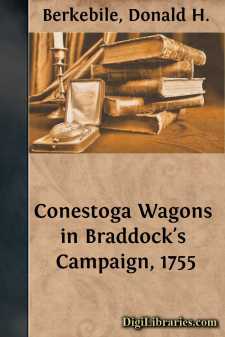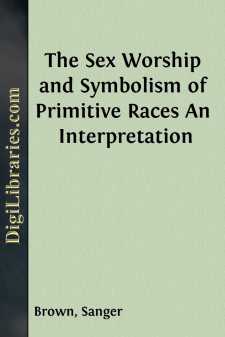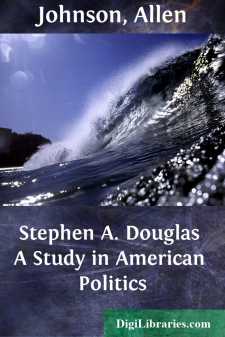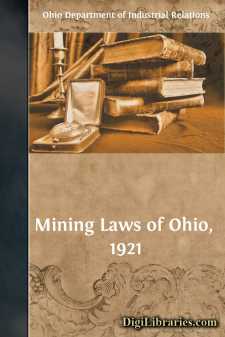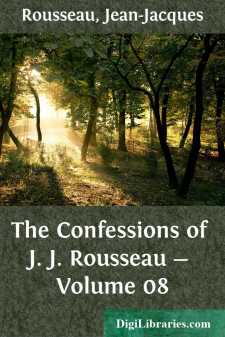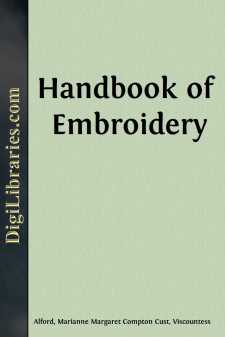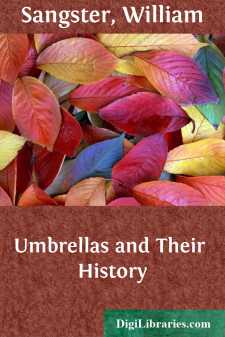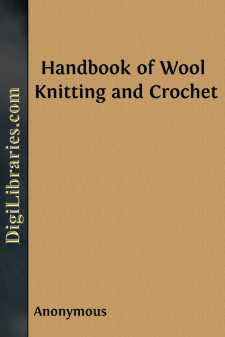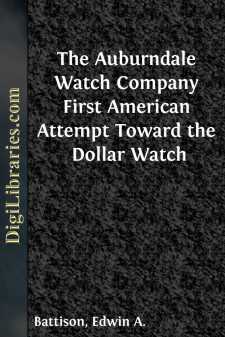Non-Classifiable
- Non-Classifiable 1768
Non-Classifiable Books
Sort by:
More than 200 years have passed since the Pennsylvania farm wagon, the ancestral form of the Conestoga wagon, first won attention through military service in the French and Indian War. These early wagons, while not generally so well known, were the forerunners of the more popular Conestoga freighter of the post-Revolutionary period and also of the swaying, jolting prairie schooners that more recently...
more...
by:
Sanger Brown
CHAPTER I Simple Sex Worship Psychiatry, during recent years, has found it to its advantage to turn to related sciences and allied branches of study for the explanation of a number of the peculiar symptoms of abnormal mental states. Of these related studies, none have been of greater value than those which throw light on the mental development of either the individual or the race. In primitive races we...
more...
by:
Allen Johnson
CHAPTER I The dramatic moments in the colonizing of coastal New England have passed into song, story, and sober chronicle; but the farther migration of the English people, from tide-water to interior, has been too prosaic a theme for poets and too diverse a movement for historians. Yet when all the factors in our national history shall be given their full value, none will seem more potent than the...
more...
RELATING TO CHIEF INSPECTOR OF MINES AND DISTRICT INSPECTORS OF MINES. Mining Laws of Ohio Sec. 898. Repealed. (Appointment of chief.) Sec. 899. [Qualifications of chief inspector of mines.] No person shall be appointed chief inspector of mines unless he has a competent knowledge, insofar as such sciences relate to mining, of chemistry, the mineralogy and geology of this state, a practical knowledge of...
more...
At the end of the preceding book a pause was necessary. With this begins the long chain of my misfortunes deduced from their origin. Having lived in the two most splendid houses in Paris, I had, notwithstanding my candor and modesty, made some acquaintance. Among others at Dupin's, that of the young hereditary prince of Saxe-Gotha, and of the Baron de Thun, his governor; at the house of M. de la...
more...
PREFACE. In drawing up this little “Handbook of Embroidery” we do not pretend to give such complete technical directions as would enable a beginner in this beautiful art to teach herself; because learning without practical lessons must be incomplete, and can only lead to disappointment. We have sought, therefore, only to respond to the inquiries we are constantly receiving, and to supply useful...
more...
by:
William Sangster
CHAPTER I. INTRODUCTORY. Can it be possibly believed, by the present eminently practical generation, that a busy people like the English, whose diversified occupations so continually expose them to the chances and changes of a proverbially fickle sky, had ever been ignorant of the blessings bestowed on them by that dearest and truest friend in need and in deed, the UMBRELLA? Can you, gentle reader, for...
more...
by:
Anonymous
Handbook of Wool Knitting and Crochet A Lesson in KnittingFigure 1. Casting on with Two NeedlesThe first thing to be done in knitting is to cast on or, as it is sometimes called, to "set up the foundation." (). There are several methods for this, the following being that preferred and generally used by the writer: Leave a spare end of thread, sufficient for the number of stitches you wish to...
more...
by:
George Thomas
THE TREATY, &c. THE Deputies of the Six Nations having, at their last Visit, agreed to release their Claim to all the Land on both Sides of the River Susquehanna, as far South as this Province extends, and to the Northward to those called the Endless Mountains or Kittochtinny Hills; in Consideration whereof, they then received a large Quantity of valuable Indian Goods for the Lands situate on the...
more...
he idea of a machine-made watch with interchangeable parts had been in the minds of many men for a long time. Several attempts had been made to translate this conception into a reality. Success crowned the efforts of those working near Boston, Massachusetts, in the 1850’s. The work done there formed the basis on which American watch making grew to such a point that by the 1870’s watches of domestic...
more...


